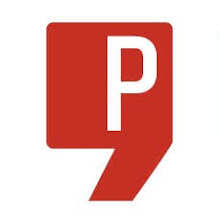 |
| Photo by Steve Harris |
“As a social enterprise providing communications services to the social enterprise sector, we wanted to understand the motivations for social impact reporting and identify the barriers for those social enterprises not already doing it.” said Jessica Smith, Director of Poached Creative.
Together they decided to run a campaign to discover the answers to these questions. They produced a white paper on social impact reporting - Why impact? – and ran a twitter social debate using the hashtag #whyimpact.
As part of the debate, social entrepreneur Liam Black shared his top two reasons for social impact reporting on twitter: first, you owe it to the taxpayers who subsidise you, and second, you find out vital data about your business.
Social impact reporting can also help prove your business is making an impact, define the need and market for your services, motivate your team, help publicise your work and secure future business.
But with all these benefits, why are over a third (32%) of social enterprises still not measuring their impact?
The Why Impact white paper identifies that social enterprises can find social impact reporting time-consuming, expensive and confusing.
One of the confusing aspects is that there is no single social impact measurement, but a variety available. The main two are social auditing or accounting and social return oninvestment (SROI), with other methods usually a variation on these approaches.
As for being time-consuming and expensive, proportionality is key (according to think tank Demos) –the amount of work needed for evaluation should be in line with and not outweigh the size of the organisation. Larger social enterprises may have the capacity to take on a fuller SROI type of assessment, whereas smaller enterprises may need a simpler approach.
Social enterprise Iridescent Ideas has addressed this issue, by offering their ‘simple’ social impact report service:
“Monitoring and evaluation methods to prove impact need to be simple, commensurate with the outcomes expected and, critically, make it easy to collect meaningful data. This takes planning, of course, but thinking it through at the start will mean that what is valued gets measured and what is measured gets valued.” said Gareth Hart of Iridescent Ideas.
To find out more visit www.iridescentideas.com/impact


